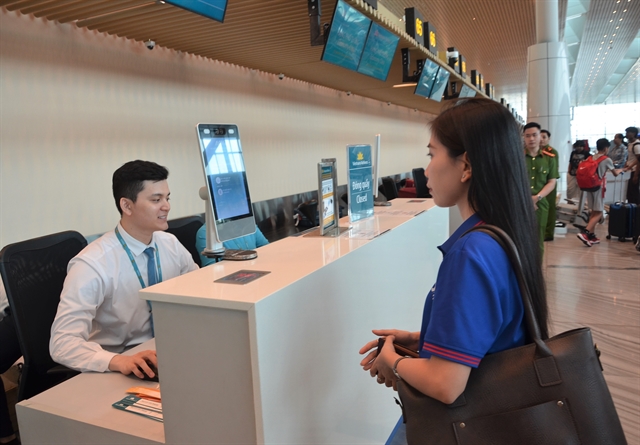The move aims to reduce fraud and improve customer protection across digital banking
Vous n'êtes pas connecté
Rubriques :
 - WN.COM - Business - 24/Jul 12:36
- WN.COM - Business - 24/Jul 12:36
Countries phasing out SMS OTPs for online banking security
Dubai: As cyber threats grow more sophisticated, countries are moving away from SMS and email-based one-time passwords (OTPs) in favour of more secure, app-based and biometric authentication methods. The UAE is the latest to announce such a shift, with banks set to stop sending OTPs via SMS and email starting July 25. Here’s a look at which countries have already implemented or announced plans to end SMS OTPs, and what changes customers can expect. UAE In a major move to enhance digital banking security, banks in the UAE will begin phasing out OTPs sent via SMS and email starting Friday, July 25. Under new UAE Central Bank guidelines, all financial institutions must shift to app-based...
Articles similaires
UAE banks to phase out SMS OTPs by March 2026 in favour of app-based security
The move aims to reduce fraud and improve customer protection across digital banking
Biometric check-in solutions scaled up at airports
The C06 Department will continue to closely coordinate with local authorities and relevant agencies to expand the implementation scope and raise the...
Biometric check-in solutions scaled up at airports
The C06 Department will continue to closely coordinate with local authorities and relevant agencies to expand the implementation scope and raise the...
Biometric check-in rolled out at Tân Sơn Nhất International Airport
A new biometric identification system using the VNeID app has officially launched at Tân Sơn Nhất Airport’s Terminal T3, allowing passengers to...
Biometric check-in rolled out at Tân Sơn Nhất International Airport
A new biometric identification system using the VNeID app has officially launched at Tân Sơn Nhất Airport’s Terminal T3, allowing passengers to...
Ruto Rolls Out Biometric Health System to Combat Hospital Fraud
Kenya has taken a bold step in transforming its healthcare sector, officially launching a nationwide biometric identification system under the Social...
Cape Town to scrap postal bills – when is the eBilling deadline?
The City of Cape Town is phasing out postal billing, and the clock is ticking for residents to send in their email details.
Cape Town to scrap postal bills – when is the eBilling deadline?
The City of Cape Town is phasing out postal billing, and the clock is ticking for residents to send in their email details.
India Post Payments Bank Launches Aadhaar-Based Face Authentication
IPPB’s Face Authentication Feature will be bring inclusive Banking for the elderly, differently-abled, and individuals with worn fingerprints.
Les derniers communiqués
-
DDB Technology Redefines Innovation by Transforming Business Models, Not Just Products
DDB Technology - 09/08/2025
-
Symmons Named Finalist in 2025 SuperNova Awards by Constellation Research
Symmons Industries, Inc - 08/08/2025
-
The Los Angeles Film School Celebrates its Nominated Alumni Ahead of the 77th EMMY Awards
The Los Angeles Film School - 08/08/2025
-
July in Review: 11 Top Technology Press Releases
PR Newswire - 08/08/2025
-
Hyperscale Data Reduces Debt by $25 Million, Strengthening Capital Structure and Bolstering Financial Flexibility Ahead of Michigan AI Data Center Expansion
Hyperscale Data - 08/08/2025
-
Spirit AeroSystems Reports Second Quarter 2025 Results
Spirit AeroSystems Holdings, Inc - 06/08/2025
-
Pearl Diver Credit Company Inc. Declares Monthly Dividends
Pearl Diver Credit Company Inc. - 06/08/2025
-
History in the Water: TYR Athletes Shine at World Aquatics Championships
TYR Sport - 06/08/2025
-
Allison Transmission Powers South America's First-Ever School Buses Equipped with Automatic Transmissions
Allison Transmission, Inc. - 06/08/2025
-
Medical College of Wisconsin Celebrates Grand Opening of the Center for Cancer Discovery, Heralding a New Era of Cancer Research in Wisconsin
Medical College of Wisconsin - 06/08/2025



